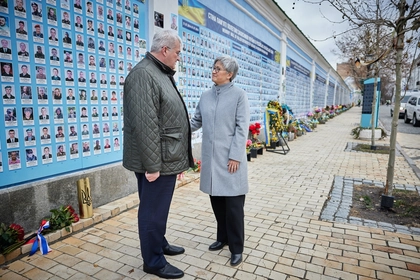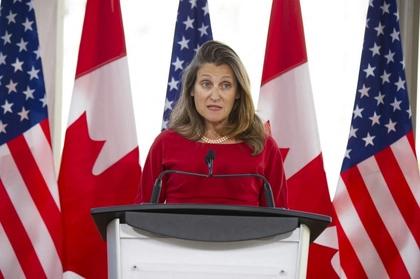The pro-Russian milblogger “Polkovnik GSH” (Colonel of the General Staff), among others, posted images on Telegram on Nov. 14 that appeared to show flatbed rail cars carrying North Korean M-1978 Koksan 170 mm self-propelled artillery systems somewhere in Russia.
Later that afternoon the pro-Ukrainian blogger “Exilenova+” published a post in which the images were geolocated to railway sidings near Krasnoyarsk in Russia (Coord: 56.069386, 92.920244) – about halfway between Pyongyang and Kursk, where North Korean troops are believed to have been deployed.
JOIN US ON TELEGRAM
Follow our coverage of the war on the @Kyivpost_official.
The M1978 “Koksan”- which was named by US analysts after the city where it was first observed is known by North Korean troops by its official designation - the “Chuch’ep’o” The artillery system was developed by North Korea in the 1980s. It is often referred to by the US designation “M1989,” the year in which it first appeared in public.
As with most North Korean weapon systems, technical information is sketchy. It is known to carry a turret-mounted 170 mm gun fixed to a variety of modified tank chassis including the Soviet-era T-54, T-62, or the Chinese type 59 tank.
There are two known versions of the gun: the earlier “1978” models lack an onboard ammunition storage system while later builds include onboard storage for 12 ready-to-use rounds of ammunition and a protective cabin for the crew.

Australian Foreign Minister Visits Kyiv, Confirms Reopening of Embassy

The Koksan is claimed to have an effective firing range of up to 40 kilometers (25 miles) with conventional rounds, and up to 60 kilometers (37.5 miles) with rocket-assisted projectiles at a firing rate of two rounds every five minutes – this exceeds the capability of most of Russia’s currently fielded artillery but is on a par with many of the Western guns available to Ukrainian forces.
The Koksan is battle proven having been used extensively by Iran as a highly effective long-range counter-battery weapon during the Iran-Iraq War of 1980-1988. Although there is no indication of how many of the guns are on their way to Russian forces, if a significant number arrive their deployment could represent a considerable augmentation of Russian firepower. If nothing else it’s another example of Moscow’s need to access additional sources of weapons and equipment, which Pyongyang only seems happy enough to provide (at a price) in support of the developing close relationship between North Korea and the Kremlin.
You can also highlight the text and press Ctrl + Enter






